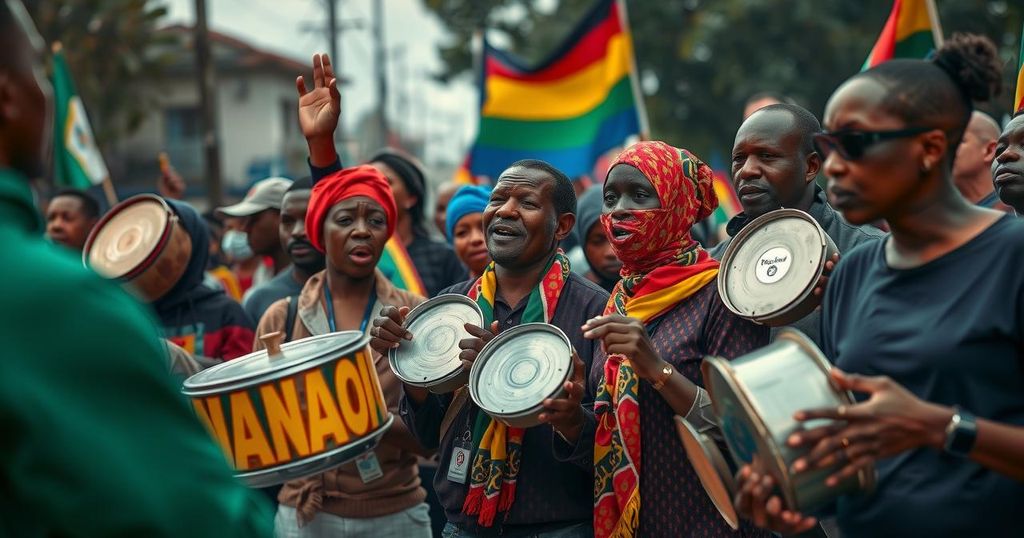Mozambique’s Persistent Protests: The Clanging Call for Change

Mozambique faces significant protests as citizens express dissent over disputed election results from October 9, where the ruling party, Frelimo, declared victory amidst allegations of fraud. Innovative nighttime pot-banging protests have emerged, reflecting widespread dissatisfaction with governance and economic stagnation. The protests have led to violence, resulting in numerous fatalities and economic repercussions, highlighting deep-rooted grievances among the populace.
In Maputo, Mozambique, innovative protests continue over the disputed election results from October 9, where the ruling party, Frelimo, claimed a victory amidst accusations of fraud. As the opposition leader Venancio Mondlane calls for shutdowns, residents have taken to nighttime “panelaco” protests, clanging pots and pans to express their dissent. The protests intensified after the assassination of Mondlane’s attorney, escalating tensions throughout the country. Despite the government labeling the demonstrations as “urban terrorism,” public outrage remains high, signifying a deep-rooted frustration related to prolonged economic stagnation, governmental oppression, and violation of civil rights. Reports indicate that violence associated with the protests has resulted in over 30 deaths, the disruption of trade, and food supply shortages, drawing attention from the Southern African Development Community. Analysts suggest the unrest reflects widespread dissatisfaction with the ruling elite, bringing together voices from diverse socioeconomic backgrounds in a unified demand for change. With the situation evolving, politicians and diplomats are challenged to address the underlying issues of governance and economic discontent in Mozambique.
The current unrest in Mozambique stems from the controversial general election held on October 9, wherein the ruling Frelimo party claimed a significant victory amid widespread allegations of electoral irregularities. The fallout from the election has led to ongoing protests and calls for economic shutdowns, emphasizing deep societal rifts regarding governance, economic hardship, and civil liberties. A key figure in the dissent is Venancio Mondlane, whose rejection of the election results has galvanized the populace, manifesting in a unique form of protest – pot-banging demonstrations known as “panelaco.” The ensuing violence from police efforts to suppress these protests has further exacerbated tensions, demonstrating a cumulative sense of disenchantment with the established order.
In conclusion, the ongoing protests in Mozambique highlight a confluence of political discontent and socioeconomic frustration following the disputed election results. The unique form of expression through the “panelaco” protests showcases the resilience of citizens united against perceived injustices amidst a context of government repression and violence. As Mozambique navigates this turbulent period, the importance of addressing the root causes of civil unrest remains paramount for stability and governance in the region.
Original Source: www.aljazeera.com







